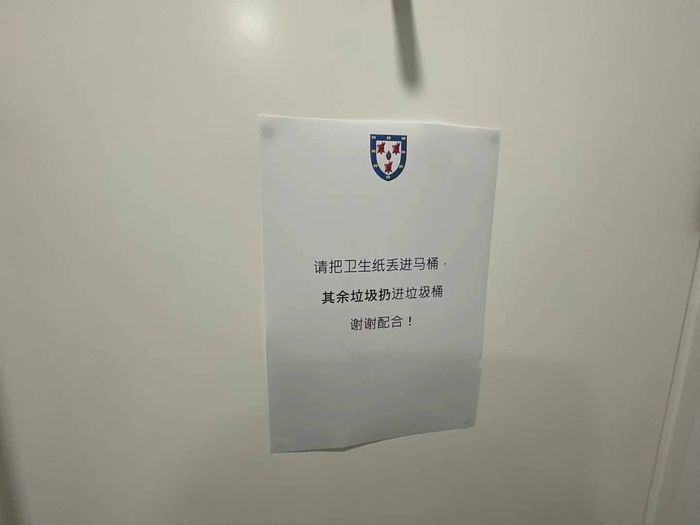Uyghur students launch pressure campaign
The students have attacked ‘depth of denial’ at UK Universities

Cambridge students have launched a Uyghur Rights Campaign in response to “silence” within the University toward China’s treatment of Uyghur Muslims.
For Leili-gul and Reya, two of the three founders behind the Uyghur Rights Campaign, the cause is personal. Current undergraduates who met through a Cambridge Amnesty event, both have family members who are suffering persecution in the Xinjiang Uyghur Autonomous Region, known to many Uyghurs as East Turkistan.
Leili, a first-year at King’s College, told Varsity that she was first attracted to the idea of a Cambridge-specific campaign after reading the UK-China Transparency Report (UKCT) (04/09/23). This report made her realise the “depth of the denial” about the Uyghur genocide within UK universities, she said.
“Across the country as a whole, universities are very scared of criticising China,” in part because there are “a lot of Chinese students”.
“If the Chinese government says they have a reputation for being unfriendly, it could massively impact their funding,” Leili explains.
Though Leili references the UKCT Report and seeing an Unreported Channel 4 documentary as formative moments, her involvement in the campaign was also spurred by her experiences in the region. Since 2017, Leili and her close family have had very little contact with their family in East Turkistan.
“There used to be phone calls but we know there were Chinese police present when the calls happened [...] there’s been none since 2017. With our grandmother, it’s unclear whether she has been held in camps or not – a lot of people aren’t given information on that,” Leili states.
She adds: “Every Uyghur you talk to has the same story.”
Leili remembers visiting the region with her parents in July of 2009, when the Urumqi Massacre occurred. 500 Uyghurs were killed in one day, and around 1,000 more were injured or sentenced to death the following week. She says: “I remember my dad running out and thinking it was a good idea to go and film. We were in the compound and left very quickly the next day.”
When asked if she would ever go back to the region, Leili responds: “I’d love to go back.”
“As a second generation, I’ve been back three times and I can’t really talk to my family there; I struggled with the language. It’s easy to feel disconnected because there’s an attempt by the government to break our roots with the region,” she explains.
Reya echoes the same sentiments, explaining how her “parents would go back in a heartbeat” despite the threat to their safety.
Reya emphasises the complexity of the situation in the region: “It’s more than a genocide though – it’s the general political repression [...] Even if they’ve stopped the mass internment, it doesn’t mean the quality of life will improve massively.”
“It didn’t start in 2016; it’s got a long history,” Reya says.
Reya's “entire extended family is still there,” she tells Varsity. “We also haven’t had contact since 2017. I think that’s what makes it even more important, about cultural representation, because it’s kind of our only link,” she adds.
The importance of the campaign lies in its resistance to the “cultural genocide” in East Turkistan, which they describe as the effort to eradicate the Uyghur language, customs, and traditions.
They are hopeful about the student population’s response to the campaign, although they recognise that some of their demands – including criticising the AMES department’s alleged links with Beijing – might be less popular among some.
“As an individual student, I’d be hesitant to say you’re complicit in this. It’s the Department’s responsibility to facilitate these kinds of discussions. It’d be unfair to say you should not be able to travel to this part of the world,” Reya says.
“In China, there’s no academic freedom; you can’t separate the Chinese university from the CCP – you’re engaging directly with them,” Leili says. She qualifies: “If you do go, you need to be very aware of what’s happening in China, and think critically about it.”
Reya believes “there is denial and there are people who don’t understand what Uyghurs are. But particularly if you’re studying such a subject [as AMES], it’s only fair that you’re aware of the different languages that are there, and the ‘ethnic minorities’.”
On their hopes for the future of the campaign, both Leili and Reya share a long-term vision. “This isn’t going to be a quick fix; there needs to be a long-term solution,” Reya states. She adds: “I don’t think our demands are unreasonable; we’re not asking for this one ethnicity to be highlighted in Cambridge.”
Reya ultimately hopes the campaign will be a celebration of Uyghur culture too, amid all the reports of its deliberate eradication. “All you hear about is the genocide, not the people. In this way, we’re preserving the culture a little bit too.”
 News / Cambridge students set up encampment calling for Israel divestment6 May 2024
News / Cambridge students set up encampment calling for Israel divestment6 May 2024 News / Cambridge postgrad re-elected as City councillor4 May 2024
News / Cambridge postgrad re-elected as City councillor4 May 2024 News / Some supervisors’ effective pay rate £3 below living wage, new report finds5 May 2024
News / Some supervisors’ effective pay rate £3 below living wage, new report finds5 May 2024 News / Gender attainment gap to be excluded from Cambridge access report3 May 2024
News / Gender attainment gap to be excluded from Cambridge access report3 May 2024 News / Academics call for Cambridge to drop investigation into ‘race realist’ fellow2 May 2024
News / Academics call for Cambridge to drop investigation into ‘race realist’ fellow2 May 2024







